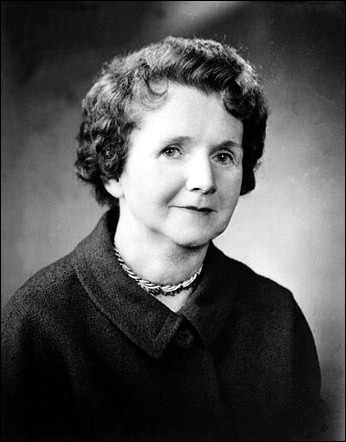
Women's History Month Feature: Rachel Carson - Environmentalist
Share

The month of March signifies the beginning of Women’s history Month. In honor of this occasion, we will be featuring an outstanding woman from history, highlighting the amazing accomplishments of women in our nation’s storied past.
Our second installment features Rachel Carson, an environmental scientist whose writings on brought significant attention to environmental issues, most notably the dangers of pesticides in her work, Silent Spring.
Ms. Carson was born in rural Pennsylvania and developed a love of nature from her mother. Carson graduated from the Pennsylvania College for Women in 1929, studied at the Woods Hole Marine Biology Lab, and received her MA in zoology from Johns Hopkins University in 1932.
She began her work in environmental sciences by writing for the U.S. Bureau of Fisheries during the Great Depression, which began a fifteen-year career as a scientist in the federal government. During this time, she began to write pamphlets on conservation, but her writing style enabled her to find a larger audience, initially as an article in the Atlantic Monthly called Undersea.
Ms. Carson’s The Sea Around Us, a biography of the ocean, earned her fame as a leading naturalist and science writer for the public, which led to her leaving government to write full-time in 1952. Her writings would enable the public to better understand and appreciate the environment and humans’ roles in preserving its beauty.

The pinnacle of her career came when she published Silent Spring in 1962. Ms. Carson was growing increasingly disturbed by the proliferation of synthetic chemical pesticides and focused her attention on warning the public about their long-term effects. Silent Spring challenged the common practices of agricultural scientists and governments in their use of pesticides and was a wake-up call for the way humanity viewed the environment.
The chemical industry attacked Ms. Carson, calling her an alarmist and her ideas unfounded. But she remained undaunted in her fight, testifying before Congress about the dangers of pesticides and continuing to educate the public until her death from breast cancer in 1964.
Ms. Carson’s legacy remains strong to this day as she inspired generations of environmentalists and women in STEM. She is truly an inspiration.
